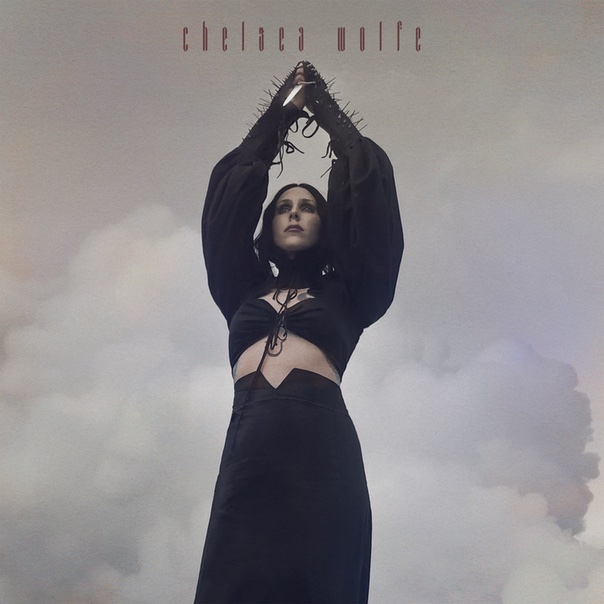ALBUM REVIEW: Chelsea Wolfe reinterprets her roots on ‘The Birth of Violence’

With the release of her goth-doom masterclass Hiss Spun, it appeared that Chelsea Wolfe had reached the precipice of her heavy side. The Sacramento songwriter has spent the last few years embellishing her occultist neo-folk with crushing riffs and experimental electronics. It resulted in her best material, begging the question of where she’d go next. While arguably a safe bet and a return to her roots, The Birth of Violence displays Wolfe’s progression as an arranger.
Birth of Violence
Chelsea Wolfe
Sargent House, Sept. 13
Opener “The Mother Road” may seem drastically stripped back compared to Hiss Spun, driven by rustic acoustic guitar. Wolfe’s spellbinding voice necessarily takes the foreground, guiding the song to a nuanced but emphatic crescendo of creaking strings and rolling cymbals. As her lyrics paint a picture of inevitable calamity, the album’s more vulnerable nature comes into full view.
This is also apparent on the death gospel swing of “American Darkness,” on which Wolfe nods toward alt-country with brush-on-snare drumming and bouncier guitar rhythms. Her entrancing vocal refrain is the kind to hear over and over, while disquieting soundscapes imbue a theme of individuality with her signature eeriness.
The doomy chord progressions and noisy percussion of “Deranged for Rock & Roll” remain nestled within a more limited sound palette. Since her delivery here doesn’t sport the cathartic heaviness of her previous outings, she relies on her rapturous voice for these songs’ melodic and dynamic propulsion. In fact, her siren-like falsetto sets the mood for “When Anger Turns to Honey” using only two notes—before her bewitching melodic runs form the refrain. Her agile, elegant melodies can now be heard at their most intimate. She hasn’t lost her ability to maintain memorability with with minimal instrumental support—though more in her voice than her guitar.
This album’s immersive ambiance is palpable, but its slow-burning minimalism causes some passages to blend together. Cuts like “Erde” and “Highway” tend to meander as they float within gothic gloom. There’s still a direction to be found within some well-placed crescendos, but the lack of punch in Wolfe’s acoustic guitar misses some energy. Still, the tone of the instrument has all the rich woodiness you could want and Wolfe’s use of fingerpicking on “Be All Things” and “Little Grave” offers more rhythmic movement within sparse arrangements. Both of those cuts steadily inflate their folky foundations to cinematic proportions. The former makes a more pronounced use of strings while the later implements a harrowing crescendo.
Even within a less-is-more context, Wolfe remains ahead of the neo-folk pack in terms of tasteful musicality. The distorted bass synth that begins the title track doesn’t have that gut-wrenching intensity of “Carrion Flowers,” but it’s still a fitting addition to the song. The drumming on “Dirt Universe” isn’t exactly robust, but Wolfe allows the muted beat to stand out. She doesn’t have to rely on dense instrumentation, as her extended range makes her voice a multifaceted instrument by itself. It also skyrockets the impact of her lyrics, which in this case provide a balance of inward and outward ponderings.
The deep piano-driven soundscapes and mournful vocal harmonies of “Preface to a Dream Play” emphasize this album’s significance as personal healing for Wolfe in the aftermath of her career having kicked into high gear. Her “dream play” seems to encapsulate her longing to return to a simpler, more innocent time, while finding solace in a safe haven of her own creation. Wolfe’s instrumental choices coincide with her heart-on-sleeve lyrical approach, incorporating her obscure imagery into relatable narratives.
For those who got into Wolfe through her past few albums, this softer outing might come off a bit jarring. Its 45-minute runtime can drift at times, but none of these tracks feel unnecessary to her bare-bones statement. The Birth of Violence proves Chelsea Wolfe hasn’t lost touch with her humble beginnings as a guitar-slinging psalmist for lovesick witches.
Follow editor Max Heilman at Twitter.com/madmaxx1995 and Instagram.com/maxlikessound.
